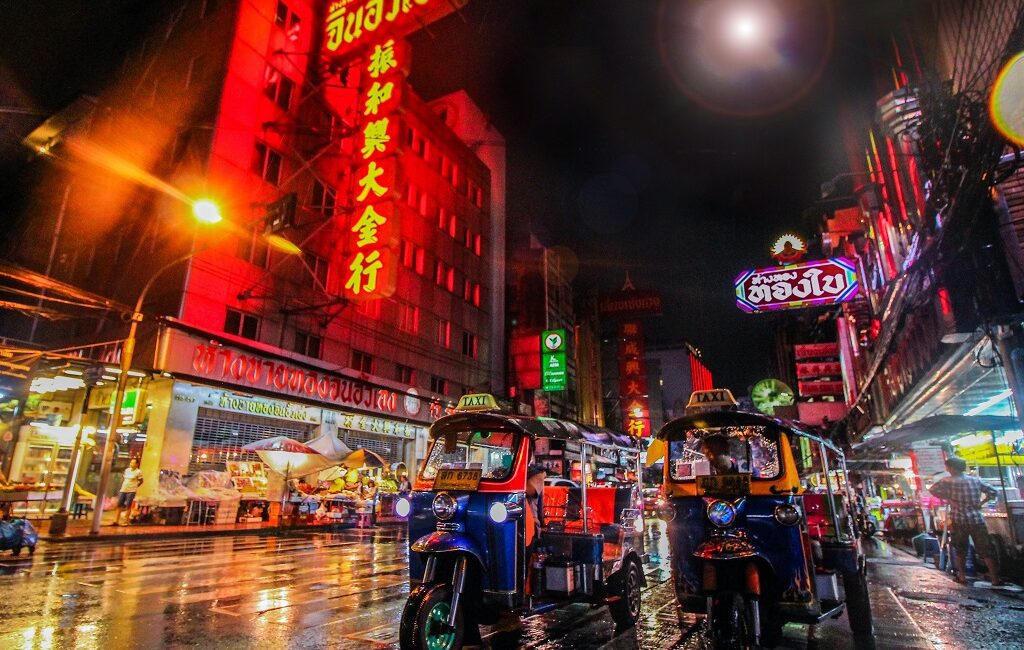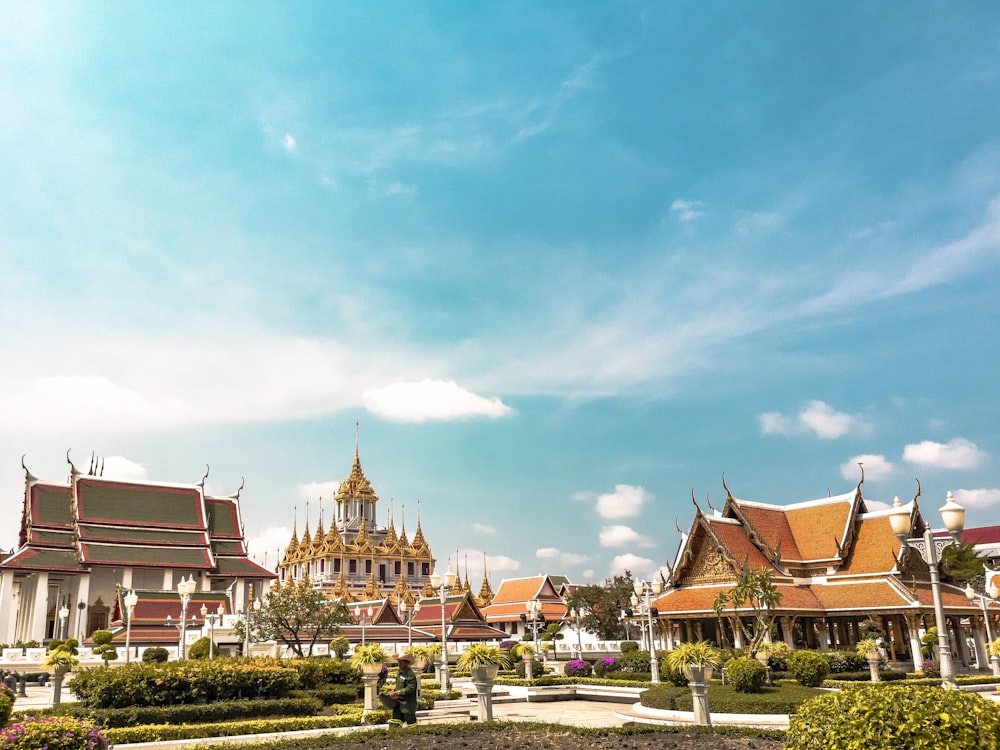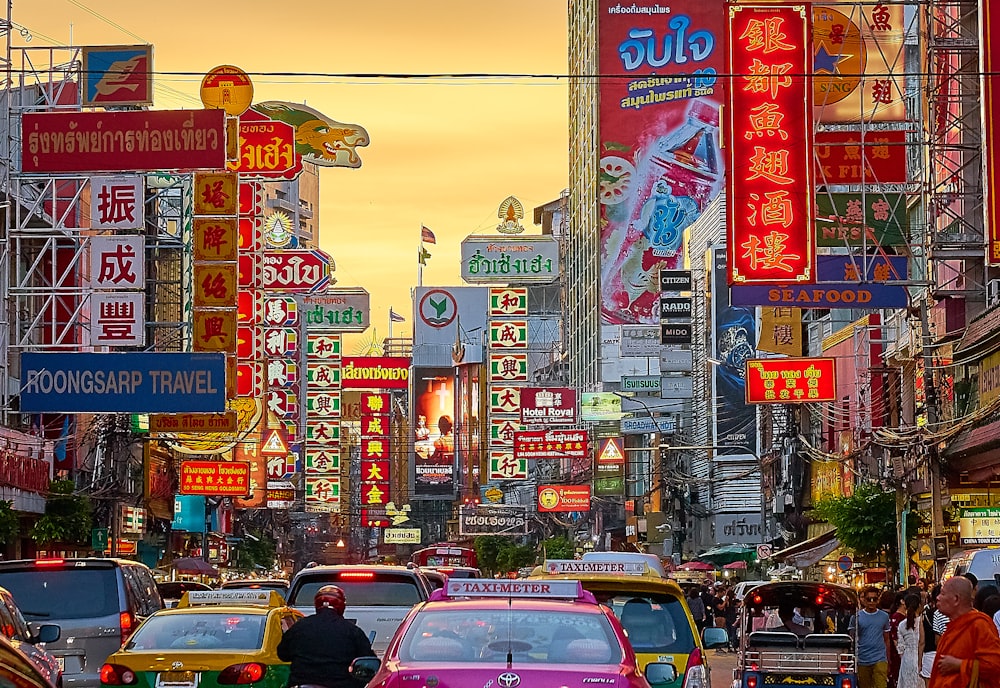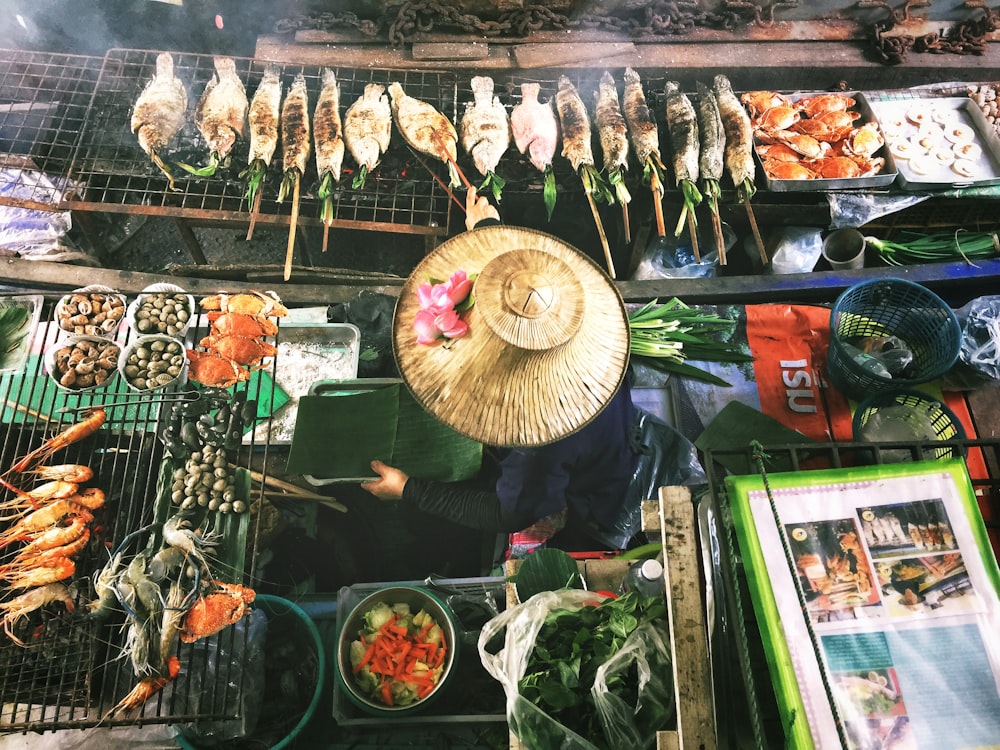The Kingdom of Thailand is a country in Southeast Asia home to almost 70 million people. The country is known for its rich culture, fantastic food, beautiful scenery, and economy. The World Bank considers it the 8th largest economy in Asia.
If you are coming from Singapore and looking to move to Thailand, there will be a lot of things that will seem familiar. Relocating to another country is a huge step. To help you make the best decision and guide you through the pros and cons, here are 8 things you’ll need to keep in mind before making the big move.
1. Get The Right Visa Type To Stay Longer
For someone who possesses a Singapore passport, you won’t need a visa to enter Thailand. You may enter and stay in Thailand no more than 30 days per stay, not exceeding a cumulative 90 days within six months.
However, if relocating is your ultimate goal, then acquiring a business visa is what you need to do. Having a job or opening a business in Thailand will qualify you for a business visa, also known as a Non-Immigrant Business Visa. This will also be very useful in the long run if you intend to be a permanent resident.
The Non-Immigrant Business Visa is either a 90-day single entry or 1-year multiple entries. You can apply for a visa in immigration or the Thai embassy/consulate in your home country.
Anyone wishing to work in Thailand will also need a working permit, which you apply for once you have a business visa. Even if you already possess a Non-Immigrant B visa, you will still not be allowed to work without a working permit. To apply for a working permit, you and your potential employer must submit several documents; a complete list can be found in the Thai Embassy.
If, after years of working in Thailand, you find it to your liking, you may apply for permanent residency, provided you possess a non-immigrant visa for at least three years, including the time of application. Also, you will need to meet at least one of these categories:
- Minimum of 3 to 10 Million Baht in Thailand
- Working or Business
- Relationship with a Thai citizen or one who is already in possession of a residence permit (Spouse, parent, guardian of a Thai child under 20)
- Expert or Academic
- Others, as determined by Thai Immigration.
Applying for these documents will increase the length of your stay and the benefits you can apply for.
2. Choose The Right City That Speaks To Your Lifestyle
Singapore is a beautiful city-state, but it is small, one of the smallest countries in the world, in fact. Meanwhile, Thailand is the 4th largest country in Southeast Asia. This means there are more places to choose from on where to settle.
If you are a fan of the fast pace when living in the middle of the city, then you should stay in Bangkok. The capital city of Thailand is home to over 8 million people and is the country’s financial centre. There are malls, shopping centres, restaurants, business offices, high-rise buildings, a vibrant nightlife, and so much more. This is probably the best place for young professionals or businessmen who want to maximise their earning potential.
If you are more of an outdoor person who likes their space but also enjoys the amenities of modern facilities, Chiang Mai is a likely choice. You’ll find many national parks, temples, outdoor treks and trails, and more.
If you prefer to live where the beach is just a few minutes away, then Phuket or Krabi will be your ideal destination. Thailand has over three thousand kilometres of coastline. It’s no wonder you’d find lots of white sand beaches all over the country.
And between these cities, suburbs, beach villages, and towns where you can put roots and settle down. But, before making any decision, you’ll have to consider what lifestyle you wish to lead. Also, you need to consider if your employment situation and earnings will be enough to support you and your family.
3. You’ll Have More Space To Move Around And Explore
Building on what we’ve already discussed, Thailand being significantly larger than Singapore, you’ll see that there’s so much to explore within the country. Thai culture is vibrant, the landscape is beautiful, and the food is some of the most popular in the world.
If you like sightseeing and visiting cultural locations, you can visit The Grand Palace, Wat Phra That Doi Suthep, Wat Rong Khun, Wat Phra Kaew, Prasat Mai or Wang Boran. These barely scratch the surface of the amazing Thai architecture you can see. What’s more, these places are often close to modern facilities so you can go sightseeing and enjoy a good meal at a close restaurant.
If you are a little more outdoorsy and want fresh air and a tan, you can go rock climbing at Tonsai Beach. Have a nature trek to dozens of nature parks. Go scuba diving and snorkelling in Koh Tao or Surf at Phuket. Perhaps you’d like to melt your worries away in the hot springs of Pai.
And once you’ve done your fair share of activities, treat yourself to authentic Thai food. Thai food is often a favourite in so many countries that Thai restaurants are ubiquitous. But there’s just no substitute when you go to the source. Once you are in Thailand, be sure to try out Guay Teow, Som Tam, Khao Soi, Pad Phuk Tong, and of course, Pad Thai. The blissful mix of herbs and spices makes for flavours that cannot be replicated elsewhere.
Thailand has so many sites to see, adventures to experience, and flavours to taste that will surely put a smile on your face in the land of smiles.
4. Communication Might Be A Problem If You Aren’t In The Major Cities
Thailand is known to be a tourist destination thanks to its many beautiful beaches. It is also a huge economy, so the influx of tourists and foreign nationals into the country is pretty high.
However, when it comes to language, the majority of the people of Thailand use their official language, Thai. There are also a few other languages that are widely spoken in the country, which are Isan, Lanna, Dambro, Karen, Pattani Malay, and Bangkok Malay.
Compared to the official languages of Singapore, there’s not a lot of overlap. But what about English, you ask? You will mostly find people who speak a little bit of English in major cities but only to a basic degree.
According to the English Proficiency Index of 2020, Singapore ranked second, and Thailand ranked 97th. That’s a bit of a disparity. If you live in provinces or find yourself in remote locations during vacations and such, you will most likely not find anyone who can speak English well.
If you plan on staying and working in Thailand for a long time, investing some time in learning the language will be well worth your while. It will allow you to work and relate better to the locals, and learning a new language is great brain exercise!
5. Thailand’s Climate Is More Or Less The Same As Singapore’s, So You Will Have No Problem Acclimating
Singapore is very close to the equator resulting in a climate that is very consistent and predictable throughout the year. Temperatures throughout the year will lie anywhere between 19 to 36 °C. And those are already record highs and lows.
Thailand is also considered to have a tropical climate and is divided into three seasons.
The southwest monsoon starts in the middle of May and up to the middle of October. You can expect rain to fall the heaviest between August and September.
After that, the northeast monsoon lasts until the middle of February. During this time, Thailand is mostly dry, with mild temperatures.
The final third, mid-February up to the middle of May, is the summer months and can become pretty hot, especially in the inland parts of Thailand. Here temperatures can reach 40 °C, a stark contrast to what it experiences during the winter months, which can get to the single digits in extremes.
The southern parts of Thailand, however, have milder weather and fewer temperature variations throughout the year, thanks to the influence of the ocean.
Thailand receives about 47 to 63 inches of rain annually, which is lower than Singapore’s average of 83 inches yearly.
6. Expat Communities Can Be A Great Help In Overcoming Culture Shock
In Singapore, it is estimated that a third of the country’s population comprises foreign nationals who are either visiting or working. This has made Singapore a melting pot of cultures and people, making it a haven for expats.
In a 2019 UN report, there are currently 4.9 million non-Thai residents. This number is a significant leap from 3.7 million just five years prior. This is another leap in numbers from the projected 2.5 million that a similar report presented in 2010.
This trend of increase in the expat population of Thailand shows that the country is becoming more and more a go-to destination for so many foreign nationals. This is an important thing to highlight as it showers in a more diverse population that is more welcoming.
When moving to a new country, it is normal to find yourself lonely or having issues with culture shock. Expat communities can lessen these issues if you can join in on groups, events, and other gatherings made specifically for people in the same boat as you.
It helps you connect with new people, make friends, and ultimately build communities. It’s easy to feel alone when you are in a new place, but once you step out of your comfort zone and say hello, you’ll see that so many people are in the same boat as you. And hopefully, won’t make you feel as lonely.
7. The Cost Of Moving And Living From Singapore To Thailand Is More Affordable Than You Think
Singapore is known to be one of the most expensive places to live in. In fact, in a survey conducted by the Economist Intelligence Unit, Singapore has ranked in the top eight times when it comes to being the most expensive city to live in.
When you think about it, having limited space and being a financial and economic centre in the region, real estate will get expensive.
In 2022, 1 SGD equals 25.71 THB (Thai Baht).
Singapore’s basic cost of living for an individual is roughly 1,500 SGD (38,542 THB) before rent. When you factor in rent, you’ll need between 2,000 to 5,000 SGD (51,389 to 12,8474 THB).
If we compare that to the cost of living in Thailand, you’ll see a huge difference. Using the cost of living in the capital city of Bangkok as a comparison, one person will need 21,135 THB a month before rent. A one-bedroom apartment will then need an additional 5,000 to 30,000 THB depending on proximity to the city centre.
In most cases, rent will be the factor that changes drastically. The neighbourhood you choose, the actual building you will rent from, and ultimately the space you select. You can often get great deals if you live just outside the city and don’t mind a little bit of commuting.
However, this isn’t a one-to-one comparison, as the pay rate will also differ. So, if you are looking for employment, budgeting a pension, or relying on income from a business, these are things you should need to consider.
8. Professional Movers Make The Move So Much Easier
Moving to Thailand from Singapore isn’t a long journey. By plane, it’s only a little over two hours. If you’d like to tour the landscape, go for an extended land adventure. Either way, it’s going to be the start of a new life for you.
Engaging with professional movers is your best bet to make this transition as smooth and stress-free as possible. Professionals like Sanelo have years of experience helping and guiding people through this momentous event in their lives. Be it a local move or an international relocation, the Sanelo will be able to assist you every step of the way.
You’ll also free yourself from the hassle and worry of transporting your personal belongings, as they will also be covered by Sanelo’s shipment protection. In such a big moment in your life, you need the best partner for the job.
Conclusion On Moving To Thailand From Singapore
There’s something for everyone in Thailand. Coming from Singapore, you’ll be at home thanks to similar weather, the vibe of a major metropolis, and the presence of a diverse population.
You are also in for wonderful experiences thanks to new locations, a vibrant culture, and great job opportunities. The cost of living in Thailand is lower, but the quality of life is still great. Just be sure you have a valid passport, get the proper visa and work permit and make informed decisions on where to stay and how to budget; then, everything should be all set for your brand-new adventure.
If you’re still on the fence, try to look into other guides for Singaporean nationals to other countries such as Hong Kong, the UK, or Japan.
Frequently Asked Questions About Moving To Thailand From Singapore
Is Moving to Thailand A Good Idea?
Yes. Thailand is a beautiful country that has a very strong economy, a vibrant culture, and an amazing landscape. The cost of living is affordable, and there are many work opportunities as it is considered the 8th largest economy in Asia.
Can You Go To Thailand From Singapore Without Flying?
Yes. However, Malaysia lies between Thailand and Singapore, so you will need to pass through several borders. Also, Thailand is a long country, and the capital city of Bangkok is found further north.
Can You Use Singapore Dollar In Thailand?
Some establishments may accept Singapore dollars, but it is wiser to exchange your money for the local currency of the Thai Baht. This way, you can get better exchange rates with authorised money exchanges.
Can Sanelo Help With My Belongings In An International Relocation?
Yes, definitely! You may contact us through email or call, and a representative will guide you through the whole process as well as any documents necessary.



